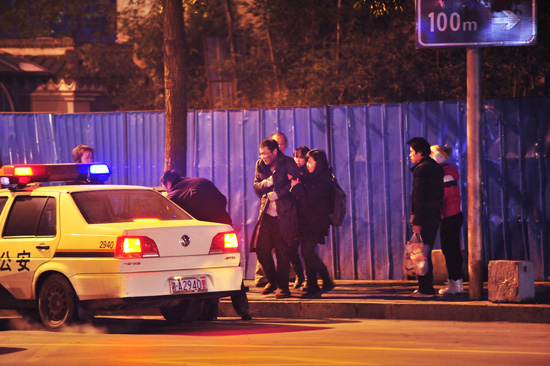
 |
| The reporter, dressed as a homeless man crouching at a crossroads while police come to give helps in Changsha city, central Chinas Hunan province, 7 January 2013. (Photo/Image China) |
Why don't the homeless want to go to relief stations? A media reporter in Hunan disguised as a homeless man suffered tortures and assault in a relief station as he tried to find out what life was like there.
The terrible trip ended up when the reporter signed and pressed a handprint on the form to "voluntarily refuse to receive help from the relief station."
The relief station in Changsha responded that the reporter was beaten because he refused to accept a body search by the duty doctor and security guards who suspected there were some dangerous items in his bulged pocket. The security guards caught him by violence for fear that he would hurt the doctor.
The explanation seems to emphasize that this is just an individual case and not the conventional way of treating vagrants, but it is difficult to convince the public.
The violent behavior of the rescue shelter in Changsha is perhaps an extreme case, but it tells the public that although the "management method for internment and repatriation" had been abolished in 2003, some regulators did not change the habitual thinking of regulating the vagrants. They have been used to treating the vulnerable group with fists and refused to serve them.
The urban homeless people and beggars should be respected and treated well and enjoy full civil rights. They have the right to accept or refuse aid but their personal safety and dignity should not be shelved because they receive the aid.

















 China's social trust index declined further last year, according to the Annual Report on Social Mentality of China 2012
China's social trust index declined further last year, according to the Annual Report on Social Mentality of China 2012


![]()
